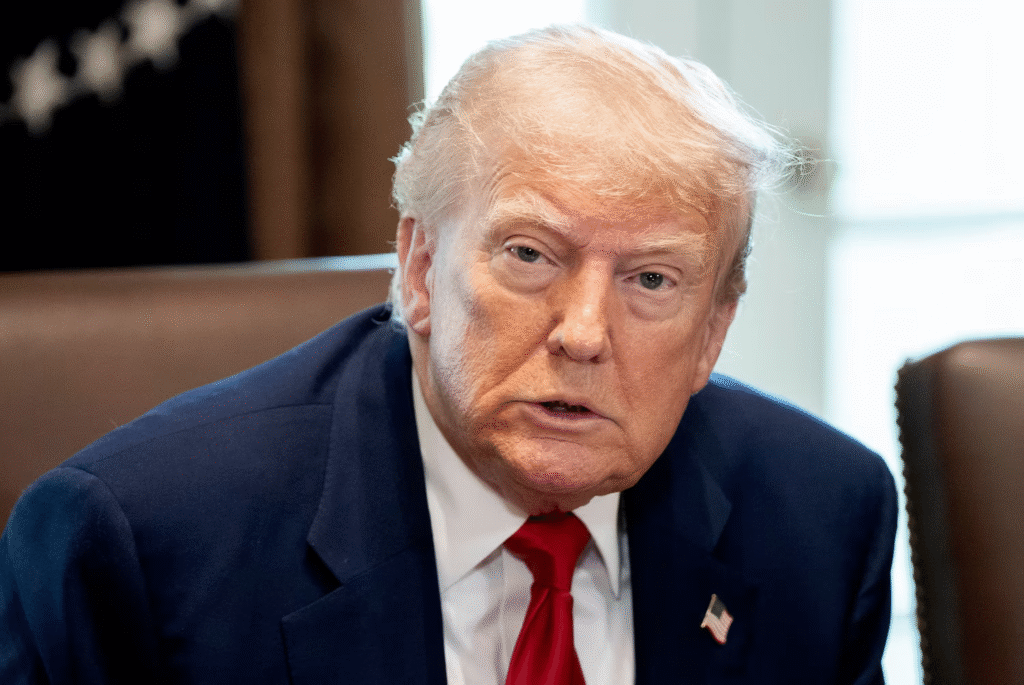
In a significant move, the Trump administration has decided to discontinue a key mental health initiative aimed at improving student well-being across the country. The decision, which impacts grants totaling $1 billion, was announced by the U.S. Department of Education. These funds were originally allocated under the Biden administration to increase mental health services in schools, a priority that the current administration now views as misaligned with its own agenda.
The Biden-era grants, part of the Bipartisan Safer Communities Act (BSCA), were designed to address the escalating mental health crisis among American students—exacerbated by the disruptions of the COVID-19 pandemic and the growing mental health challenges faced by young people in schools. The funding was intended to provide additional resources, including hiring more counselors, psychologists, and social workers, to help students navigate emotional struggles and better understand their mental health.
However, the Trump administration’s Department of Education has now confirmed that it will not renew these grants, citing concerns over the way the funds were being used. According to Madison Biedermann, Deputy Assistant Secretary for Communications at the Department of Education, the grants were being misused for “race-based actions” such as recruiting quotas, which the administration believes diverted attention from the primary goal of supporting mental health.
Biedermann’s statement argued that these initiatives, under the Biden administration, had strayed from their original mission. “Instead of improving mental health, recipients of the funding have used it to implement programs that are unrelated to mental health and may even harm the students these grants were meant to help,” she wrote.
This shift comes as part of a broader strategy by the Trump administration to roll back diversity, equity, and inclusion (DEI) programs in schools, a move that has sparked considerable debate and opposition. While the administration frames these efforts as a correction of perceived ideological overreach, critics argue that the cuts undermine vital support systems that students—especially those facing mental health challenges—desperately need.
Divided Reactions to the Decision
The decision to cut these critical mental health funds has drawn starkly different responses across the political spectrum. On one side, conservative voices, including activist Christopher Rufo, have lauded the move, suggesting that the grants were a thinly veiled attempt to advance “left-wing racialism” under the guise of mental health reform. “No more slush fund for activists,” Rufo wrote in a post, accusing the funding of supporting political agendas that had little to do with student welfare.
In contrast, critics, particularly in the education sector, have expressed deep concern that the cuts will negatively affect student well-being at a time when mental health support is more crucial than ever. Randi Weingarten, president of the American Federation of Teachers, called the move a “direct attack” on the safety and mental health of children.
“While they may not have agreed on everything, Congress secured bipartisan funding to improve kids’ understanding of themselves and the world around them,” Weingarten stated. “Now, with the stroke of a pen, that progress has been wiped away, even as the president and his allies insist that improving mental health is the only way to address the gun violence epidemic.”
The $1 billion allocated under the BSCA was a key component of President Joe Biden’s broader initiative to increase mental health resources in schools. In addition to addressing immediate mental health needs, the funding sought to create long-term infrastructure for supporting students. This included expanding the number of school-based mental health professionals—such as counselors, social workers, and psychologists—who are vital in helping students cope with anxiety, depression, and other challenges.
A Missed Opportunity for Students
For many mental health professionals, particularly those working directly with students, the administration’s decision is deeply troubling. Dr. Tish Brookins, a certified social worker based in Jefferson County, Kentucky, expressed concern that the funding cut would have lasting negative effects on students, especially those from underserved communities.
“This cut undermines every effort we’ve made to build safe, responsive, and equitable schools,” Brookins explained. “Mental health support in schools is not a luxury. It is a necessity.”
The benefits of increased mental health resources in schools are widely recognized. Research consistently shows that providing students with access to mental health professionals improves not only their emotional well-being but also their academic performance. Furthermore, mental health services are key to addressing the trauma that many students face, particularly in the wake of the COVID-19 pandemic, which disrupted learning and social connections.
Brookins emphasized that the Trump administration’s decision would result in “missed opportunities, deepened trauma, and diminished futures” for countless students who rely on school-based mental health support. For many children, especially those in low-income areas or with limited access to private healthcare, the school counselor or social worker is often their only point of contact for mental health services.
The Political Landscape
The elimination of these funds comes amidst a broader political context in which the Trump administration has pursued aggressive reforms aimed at curbing what it views as an overreach of progressive policies in schools. These reforms, particularly those targeting DEI programs, have generated intense debate over the role of race and identity in education. Proponents of the cuts argue that such programs distract from core educational objectives, while critics contend that removing these initiatives harms marginalized students who depend on them for support.
The decision to discontinue the $1 billion in school mental health grants highlights the ongoing ideological divide over education policy in the U.S. As the debate continues, it remains to be seen how these shifts in federal funding will impact students, particularly those already struggling with the emotional and psychological toll of a tumultuous few years.
With mental health concerns at an all-time high, many educators and advocates are left wondering whether the government’s focus on ideological issues will come at the expense of addressing the more immediate needs of students who require mental health support. For now, the question remains: will the new priorities foster healthier, safer school environments, or will they deepen the challenges facing students in the classroom?


